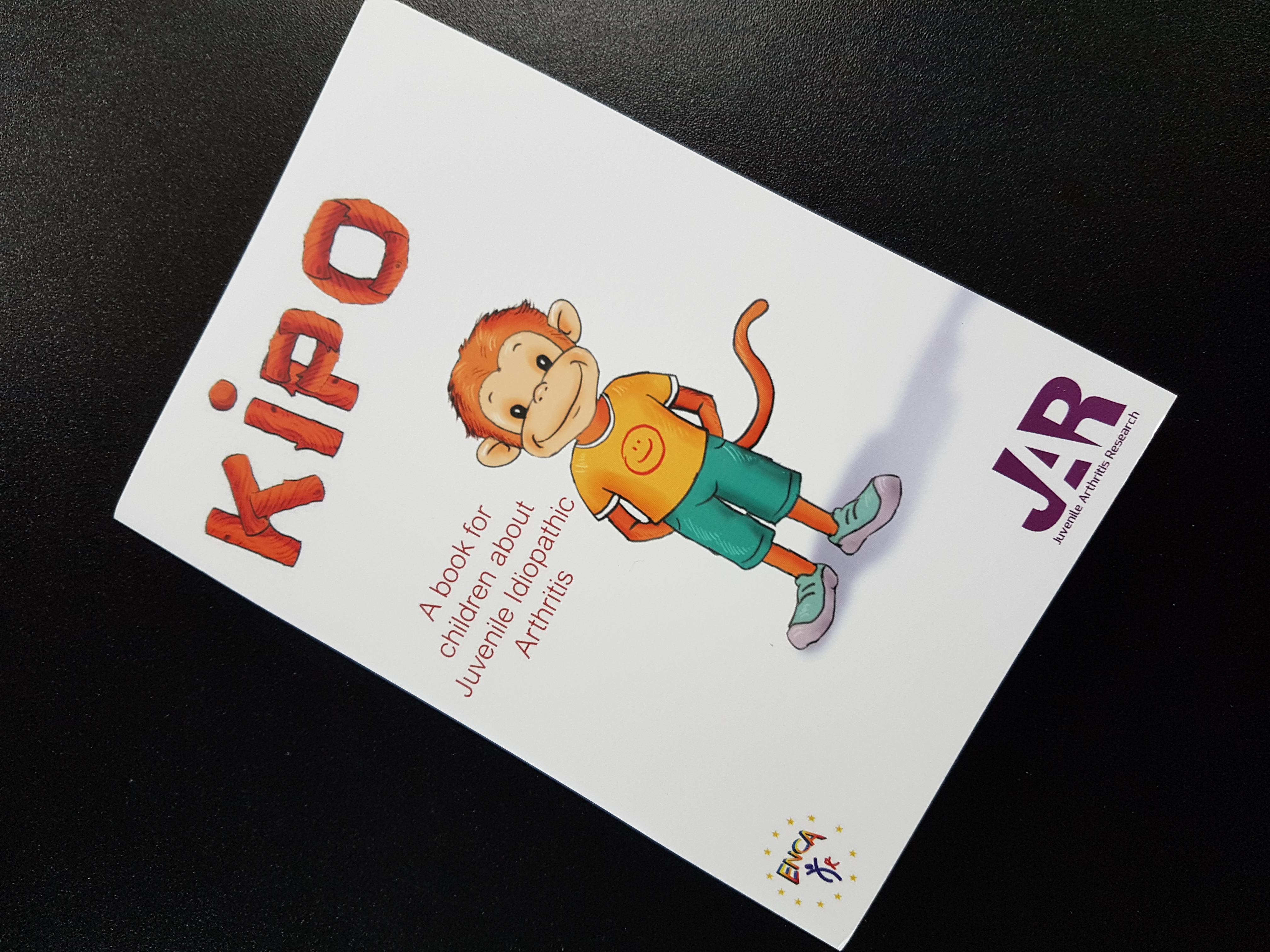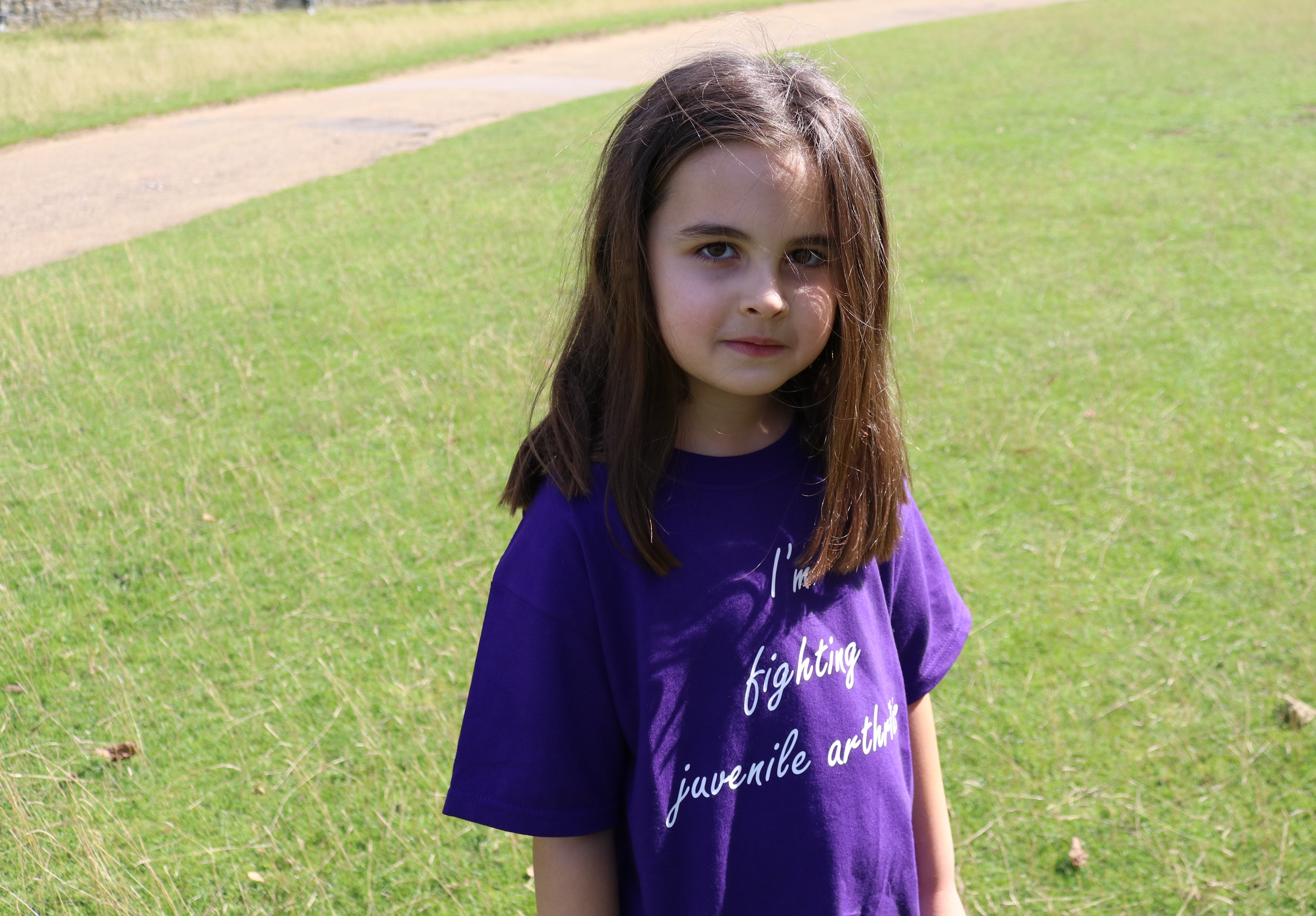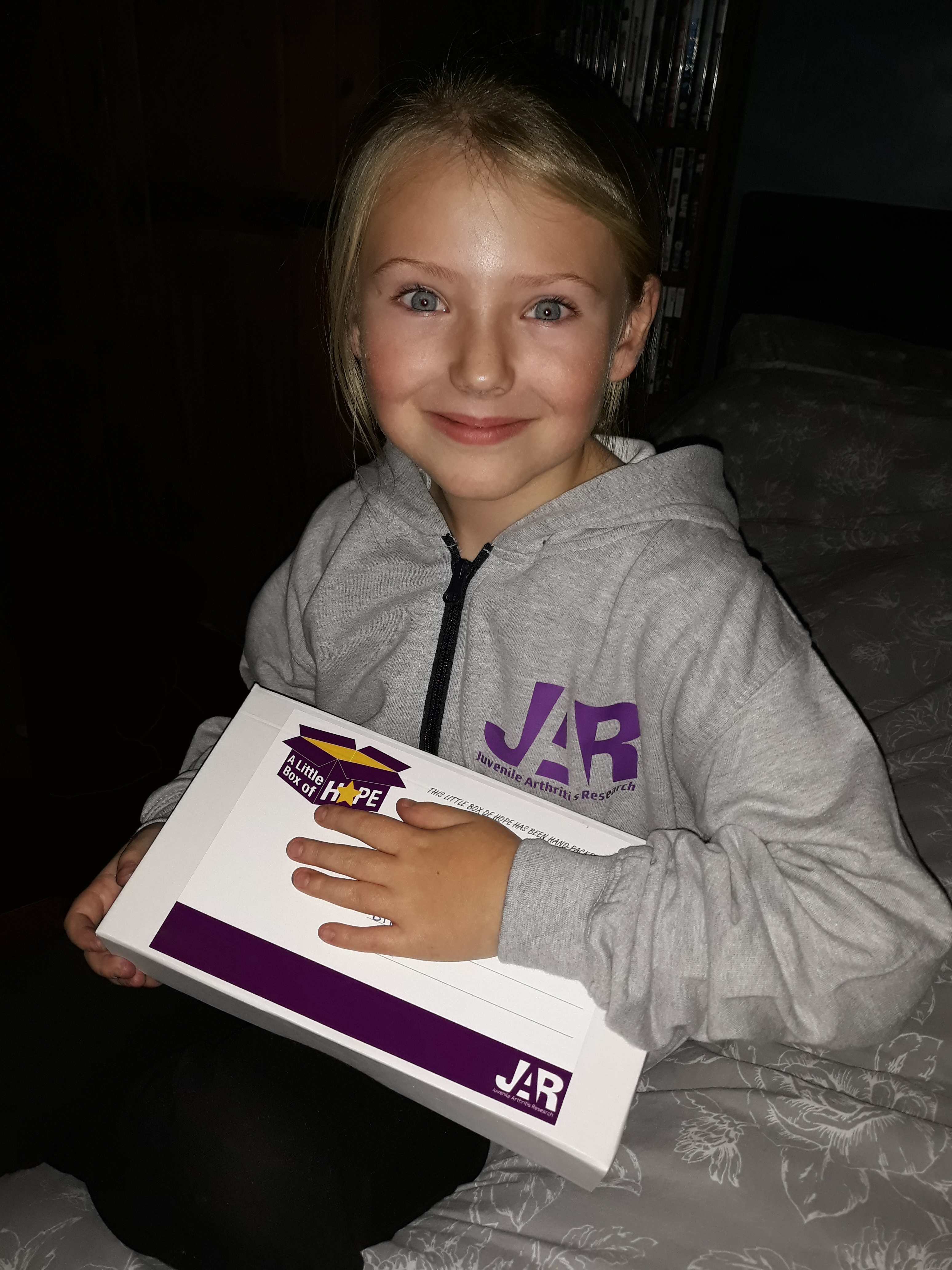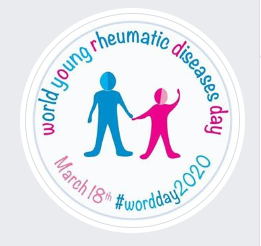Children get arthritis too – Raising awareness on WORD day, 18th March 2020
Why not join us on 18th March 2020 to help raise awareness that children and young people get arthritis?
Juvenile Arthritis Research (www.jarproject.org) will be joining thousands of others around the globe on World yOung Rheumatic Diseases (WORD) day to raise awareness that children get arthritis too. WORD day is taking place on 18th March 2020.
Across the UK, around 15,000 children and young people under the age of 16 have been diagnosed with juvenile idiopathic arthritis (JIA), and every week around 20 families are given the news that their child has the condition. JIA is a painful autoimmune disorder, where the body’s natural defences attack the joints causing inflammation. This leads to pain, discomfort and reduced mobility. Without adequate and prompt treatment, JIA can lead to other health conditions as well as permanent disability and long-term health implications. Some children with JIA develop uveitis, which is inflammation inside their eye. If this isn’t treated promptly, children could lose their sight.
At the moment there is no cure for Juvenile Idiopathic Arthritis. All existing treatments reduce the symptoms of JIA, but are not a cure. Whilst these treatments have beneficial effects in reducing pain and inflammation, and provide some protection against long-term joint damage, they come with their own side-effects and affect the long-term health of children taking these medications.
Juvenile Arthritis Research have three aims – to find a cure for JIA, to raise awareness that children and young people get arthritis, and to provide support to children and their families when they receive a diagnosis of JIA.
Sadly, many children with JIA have to wait a long time before they are diagnosed and start treatment. One of the main causes of these delays is a lack of awareness that children get arthritis. JIA is a relatively rare condition, so it isn’t always at the forefront of doctors’ minds when a child has joint pain and discomfort. Richard Beesley, founder of Juvenile Arthritis Research (JAR project) explains: “We know that these delays in diagnosis can cause permanent joint and eye damage. We also know that prompt diagnosis and treatment leads to much better long-term outcomes for children with JIA. One of the best ways to reduce delays is to raise awareness that children and young people get arthritis. That is why Juvenile Arthritis Research has developed the #ThinkJIA campaign and resources, and why we are joining so many organisations across the globe this World yOung Rheumatic Diseases (WORD) day on 18th March 2020.”
Why not join us on 18th March 2020 to help raise awareness that children and young people get arthritis?
Ways to get involved in WORD day on 18th March 2020:
- Add the date to your diary and follow us on social media for updates
- Visit our #ThinkJIA website at www.thinkJIA.org
- Share some of our awareness-raising social media posts in the run up to and on WORD day
- Take the #ButtonChallenge2020 by wearing a pair of gloves to do up your buttons to understand how difficult a task like this can be for a child with JIA. Why not share a video of your attempt on social media?
- Contact us though our website to request our awareness raising leaflets to share with schools and clubs that you are part of.
- Raise funds for The JAR Project towards our research work, our awareness-raising work and our family support initiatives. Find plenty of ideas at https://www.jarproject.org/support
Juvenile Arthritis Research is a charitable project aimed at finding a cure for the disease, whilst raising awareness of the condition and providing support to children diagnosed with JIA.
You can find out more about the project, and support Juvenile Arthritis Research at www.jarproject.org
SOCIAL MEDIA HANDLES
Website: www.jarproject.org
Social: Twitter @JARProject
Facebook facebook.com/JARProject
Instagram @_jarproject
NOTES FOR EDITORS:
BACKGROUND INFORMATION ABOUT JIA
In children and young people with juvenile arthritis, the body starts to attack the joints, causing inflammation, pain, discomfort and reduced mobility. If the inflammation cannot be controlled effectively, it leads to joint damage and bone destruction leading to further pain and complications, including permanent disability and long-term health implications. Many children with juvenile arthritis suffer from uveitis, where the immune system attacks the eyes; if not stopped this can lead to permanent vision loss and blindness. Juvenile arthritis is not the same as age-related osteoarthritis, and is a different condition to rheumatoid arthritis.
Juvenile arthritis affects 1 in every 1,000 children under the age of 16. At present, there is no cure.
Thirty years ago, the only medications given to help children with the condition were painkillers. These had variable effects in reducing pain, but were unable to reduce inflammation effectively, and so unable to prevent joint damage. This has resulted in JIA patients, who were children when they developed the disorder, needing joint replacements as young adults.
Nowadays there are a range of new treatments available. The standard treatment is Methotrexate – a chemotherapy drug that works by reducing the immune system. This is often supplemented with other medications (such as painkillers and steroids) when required. However, methotrexate has side-effects and is not always effective. In fact, it is ineffective in treating JIA in around 35% of all patients. Where patients do remain on the drug, they often experience sickness (for which many take anti-sickness medications), hair loss, headache, mouth ulcers, and weakness. Methotrexate is also cytotoxic, and can cause liver damage for which regular blood tests are required.
Where children and young people are unable to take methotrexate, they may move on to ‘biologics’ – the next level of drugs. These work in a variety of ways, but all work to reduce the immune system.
As a result of having their immune system reduced, children and young people on anti-arthritis medications are more likely to contract illnesses. Even relatively simple illnesses can become severe and life-threatening.
ABOUT JUVENILE ARTHRITIS RESEARCH
In January 2018, Richard Beesley founded Juvenile Arthritis Research in order to find a cure for JIA. Richard has a background in biomedical research from the Institute of Child Health, and experience in running clinical trials and research programmes, and has worked in research, project and programme management in a number of public and private sector organisations. The JAR Project aims to find a cure for the 15,000 children in the UK with JIA and the millions who suffer from the disease globally.
The JAR Project has the support and endorsement, both in terms of their aims and methodology, from the leading research teams in academic research.
WHAT IS LIFE LIKE FOR A CHILD WITH JIA ?
Trinity is seven years old. She was diagnosed with JIA when she was two. For her, JIA looks like this:
- Weekly injections of methotrexate, causing sickness and increasing the number of other illnesses and infections she suffers as her immune-system is reduced
- Folic acid supplements six days per week (to combat the side-effects of the methotrexate, such as hair loss)
- Blood tests every 2 to 6 weeks (to monitor liver damage due to the methotrexate)
- Physiotherapy exercises at home five times per week
- Regular hydrotherapy sessions
- Regular x-rays, ultrasounds, and MRIs of affected joints to monitor progress
- Eye-drops during uveitis flare-ups
- Antibiotics when infections set-in
- Podiatry-prescribed insoles
- Specially-fitted shoes
- Use of a wheelchair during flare-ups
- Appointments with
- paediatric consultants every three months
- eye specialists every three to four months
- paediatric physiotherapists every six months
- podiatrists every six to nine months
- Regular admission to hospital with secondary illness and infections
Trinity’s experience is not uncommon but, in some ways, she is one of the ‘lucky’ ones as her JIA is currently responding to methotrexate and joint damage is currently being prevented.
All of this is to enable her to live as normal a life as possible. She is not alone. There are thousands of JIA patients across the country, all of them on similar treatment regimens to Trinity. A life of injections and treatment, hoping for remission but planning for a forever without it.
You can read more case studies of children with JIA at: https://www.jarproject.org/stories
Press release distributed by Pressat on behalf of Juvenile Arthritis Research, on Tuesday 4 February, 2020. For more information subscribe and follow https://pressat.co.uk/
Arthritis JIA Children Juvenile Idiopathic Arthritis Rheumatology Awareness Charities & non-profits Children & Teenagers Health Medical & Pharmaceutical
You just read:
Children get arthritis too – Raising awareness on WORD day, 18th March 2020
News from this source:






